Subscribe now and get the latest podcast releases delivered straight to your inbox.
Some years ago I was doing a training session with a sales team. Typically how these trainings work is we’ll teach a communication principle or two and then role-play them in real time. We’ll do this several times over the course of an hour.
When it came time to start our first role-play, the most senior member of the team was adamant: I’m not doing that. I’ve been selling for 20 years and I don’t need to practice.
Now, I know role-plays can be uncomfortable — and I know this guy probably was a pretty good salesman.
But, if I were building a sales team, would I hire him? Absolutely not.
His response proved to me exactly what I’ve often found to be the case.
When it comes to hiring, experience is overrated.
That deep resume filled with years of experience can be more of a drawback than a benefit.
Experience often comes with rigidity and a sense of privilege. Of course, this is not always the case. There are countless pros who foster a growth mindset even as they accumulate years of experience.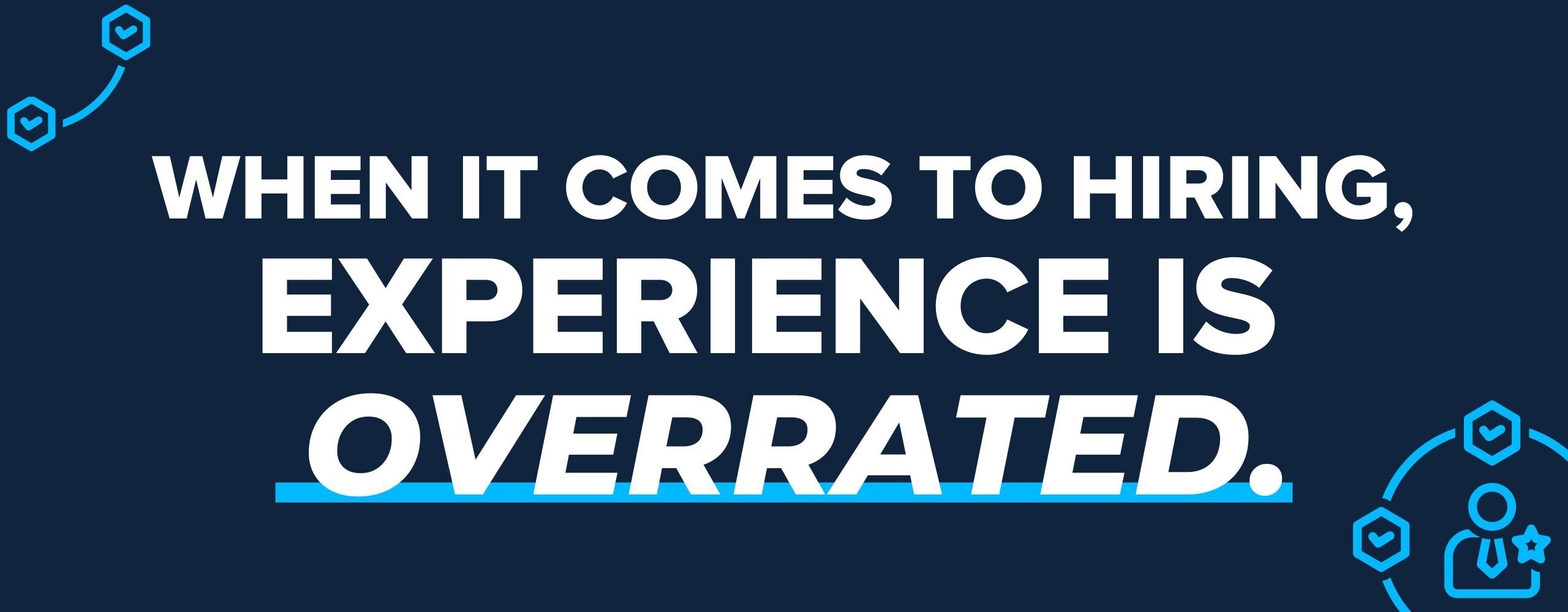
But when I help companies hire — especially for sales, marketing, and customer service — nine times out of 10 I advise them to hire for coachability and eagerness, not experience.
What to look for instead of experience
In the knowledge economy, the ability to learn trumps the accumulation of experience.
These learners could be young folks with energy and passion, but they don’t have to be fresh-faced twentysomethings. Older professionals can be learners as well — especially if they switched careers at some point to try something new.
According to research from PWC and others, companies are increasingly turning to industry outsiders. The feeling goes like this: If we hire from inside the industry we’ll hear the same old ideas that have all been tried before. But if we get an outsider, we can bring in a fresh perspective.
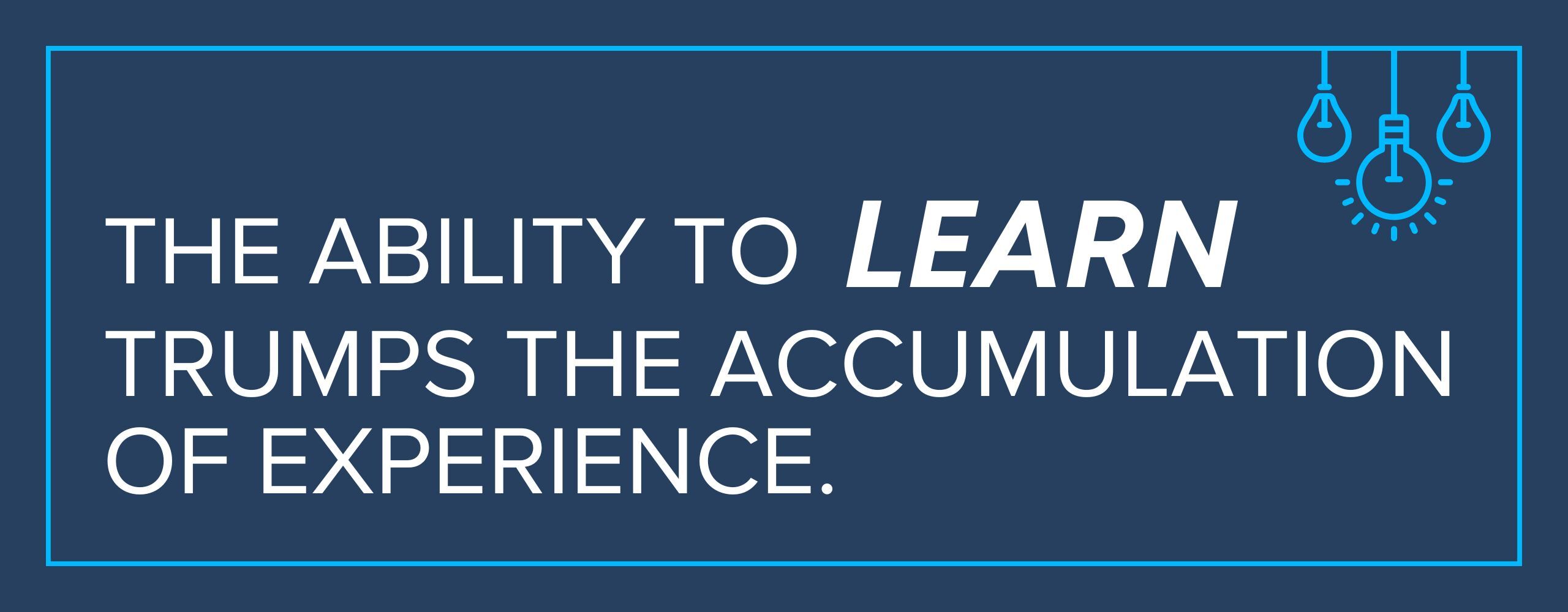
Increasingly, organizations are looking for something novel in their applicant pool: the ability to adapt, explore, question, and invigorate.
And as I help companies hire their next great sales and marketing pros, I’m moving in the same direction. Coachability and growth potential top pretty much everything else.
The only question is, how do you actually find it?
3 ways to verify an applicant's coachability
Here’s the problem. It’s easy to see experience on a resume: three years here, director of this, responsible for that. It’s harder to see coachability.
So, how do you evaluate something you can’t see?
I’m not going to lie — it can be hard at first, but here are three things you can try.
1. Get more out of your hiring task
In almost every hiring situation, you should include real-world tasks for the applicant to complete.
When you do this and how you do this will depend on the role and your needs, but the tasks should mimic the actual responsibilities the applicants would have in the role if they’re hired:
- The manager facilitates a role-play 1:1 with a troubled employee
- The marketing applicant needs to design a mini campaign
- The salesperson puts together a prospecting strategy
- The videographer produces a quick video
And so on.
Now, the smart thing to do is to use these tasks to measure more than just competency.
Sure, you want to know that your content manager candidates can write a good article. You want to know that your sales rep candidates can put together a strong presentation.
But that’s not where the evaluation should end.
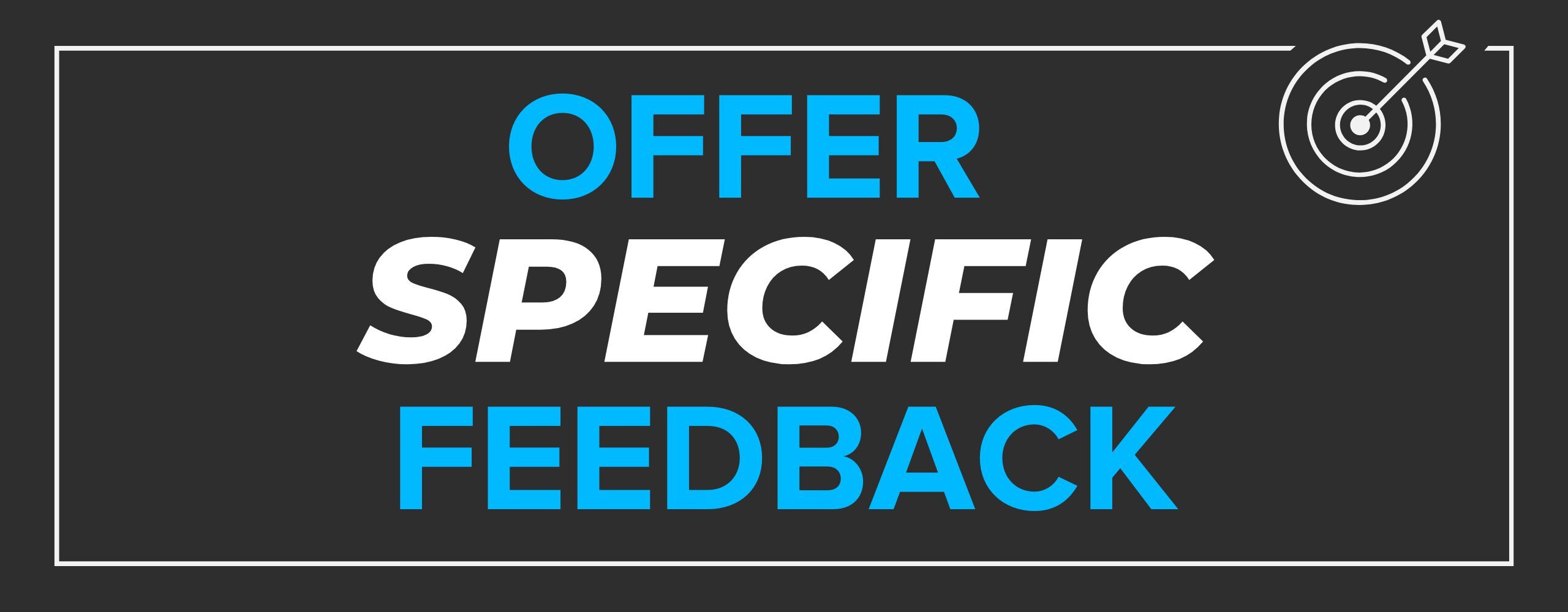
When you collect their work, don’t just use it to check a box for whether they can do the job or not. Instead, offer specific feedback. Tell the candidate in advance that a feedback session will be coming, and make sure some of the feedback you give is critical.
This is the important moment.
Watch the candidate react to feedback in real time. Do they squirm, blame the assignment, or glaze over? If so, they’re not demonstrating coachability. Rather, they’re rejecting your feedback, passing the buck, or just pretending to listen.
Now, imagine the difference. When you offer feedback, a candidate engages with you. You have a discussion. She pushes you to explain a few things more clearly — not to be argumentative, but to really understand your point of view. She takes some notes. Her body language is receptive, open, comfortable, and focused.
That’s the coachable person. That’s the one you should hire.
2. Scrutinize recommendation letters — and follow up
I’m going to go out on a limb and say that recommendation letters are fairly worthless. Not because the opinions of coworkers and managers don’t matter. They do. A lot. The problem is that rec letters are all pretty much boilerplate.
I’ve read a lot, and they mostly all say the same thing:
Hard worker
Stays organized
Team player
And so on.
To find what you’re really looking for in a rec letter, look closely for stories of struggle, perseverance, adaptability, and contribution.
If you don’t find them, set up a time to speak with the supervisor or colleague who wrote the letter and ask.
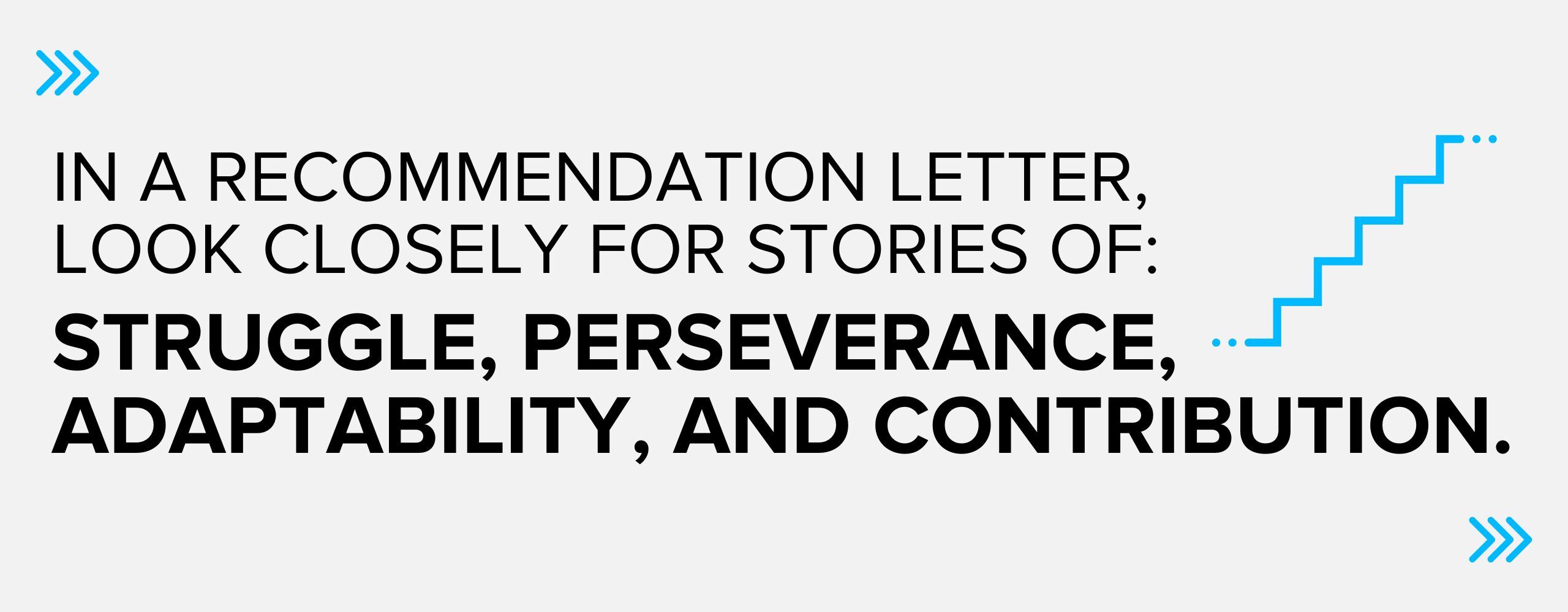
Be specific. Ask about growth and development, and when things did not go the person’s way.
- What role does this person tend to play? Hero or victim?
- How did they respond to adversity?
3. Ask the candidate
This sounds obvious, but it’s worth mentioning. Ask the candidate directly: Are you comfortable learning new things and receiving candid feedback?
Be clear that these are parts of your company culture, and that the person should know this upfront.
Of course, anyone looking for a job is likely in interview mode, so take what they say with a grain of salt. Still, it’s important to set expectations from the outset so they know what they’re going into.
At IMPACT, we have all new hires read a half-dozen books that line up with our core values. We want them to know from Day 1 that we value candor, collaboration, and involvement.
Hiring for the high upside
Imagine this.
You’ve narrowed it down to two applicants: Candidate A and Candidate B.
If you knew that Candidate B had way higher potential than Candidate A but would take some time to get there, which would you choose?
When you hire an experienced candidate, you’re getting more of a known commodity. That’s both good and bad. The good is obvious, but the bad is this: There’s a good chance that this person has already reached his potential. His capabilities for growth are more modest, so what you’re getting might be good, but it’s unlikely to get much better.
Think back to the salesman in my opening anecdote. Was he good? Probably. Was he going to get much better? Probably not. He had already peaked in his mind, and he was unwilling to do the work to improve.
Not only that, but he was also limiting the growth potential of every person in that room.
When you hire someone hungry and coachable, their best days are far in the future.
That’s a really exciting prospect — but it requires patience and mentoring to bring to fruition.
You will have to play a part in that person’s development. Otherwise, he will never reach his full potential.
The future of your business
The nature of work is changing — and the challenges that lay ahead can’t always be predicted a few months ahead of time.
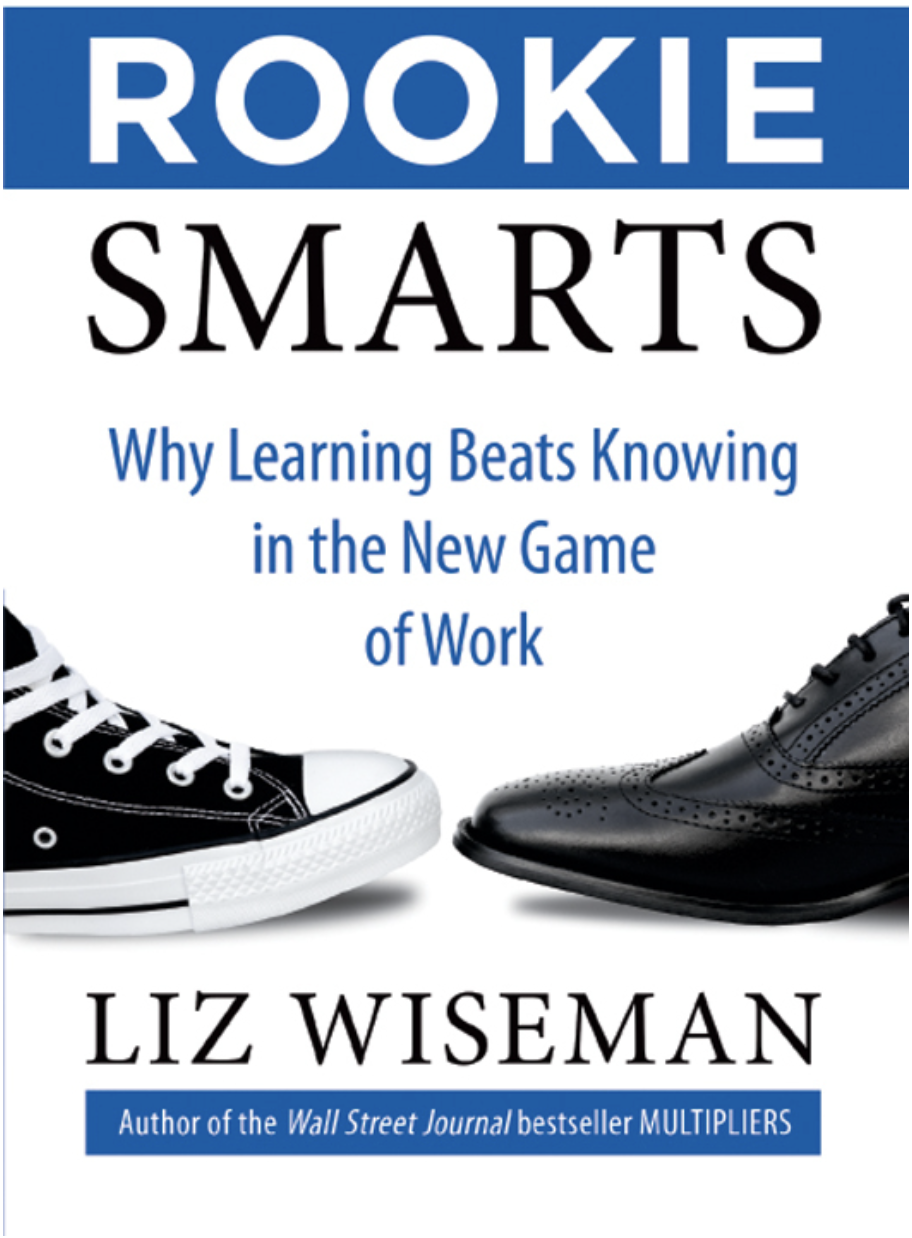
Let alone a few years.
If the pandemic and the dawning of AI have taught us anything, it was that adaptability and creativity are crucial, while strict allegiance to the status quo can be a death sentence.
In her book Rookie Smarts, author Liz Wiseman writes, “While experience provides a distinct advantage in a stable field — like the realms of bridge building, ballet, or concert piano performance — it can actually impede progress in an unstable or quickly evolving arena.”
When you look to hire your next team member, don’t be bound by the outdated principle that experience matters most. Hire someone coachable, hungry, and ready to learn. You want a company full of workers whose best days are ahead of them.


Order Your Copy of Marcus Sheridan's New Book — Endless Customers!

